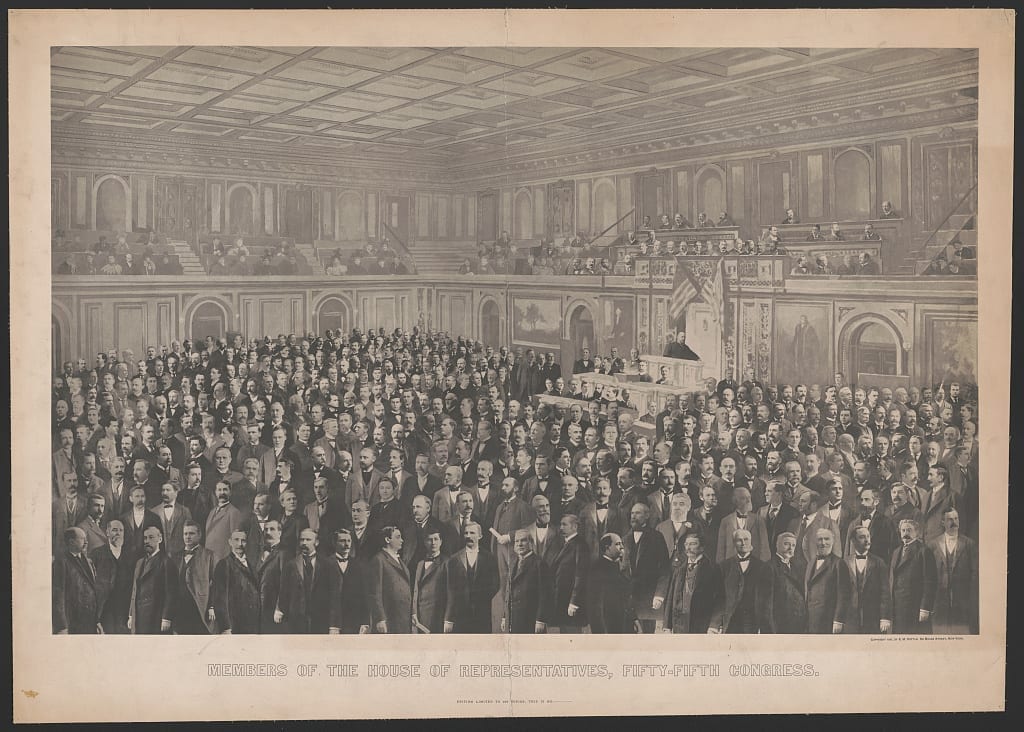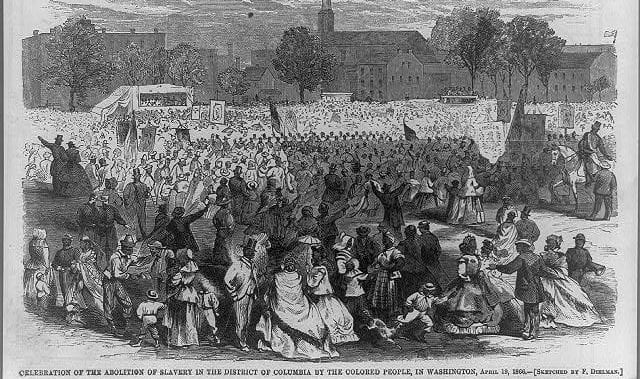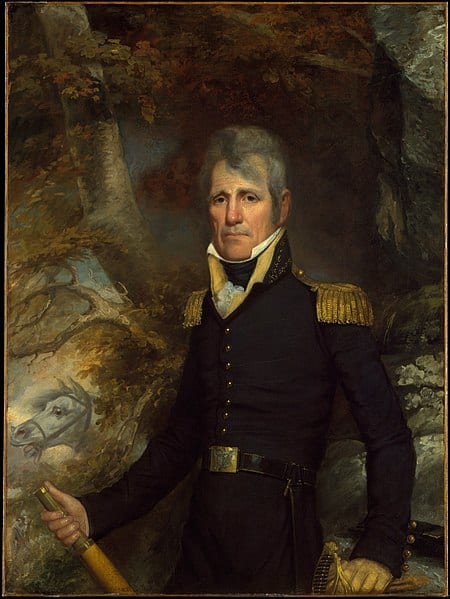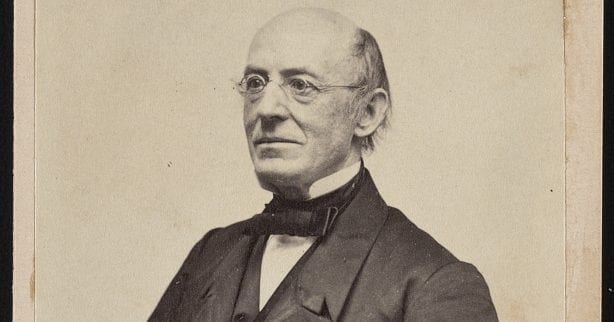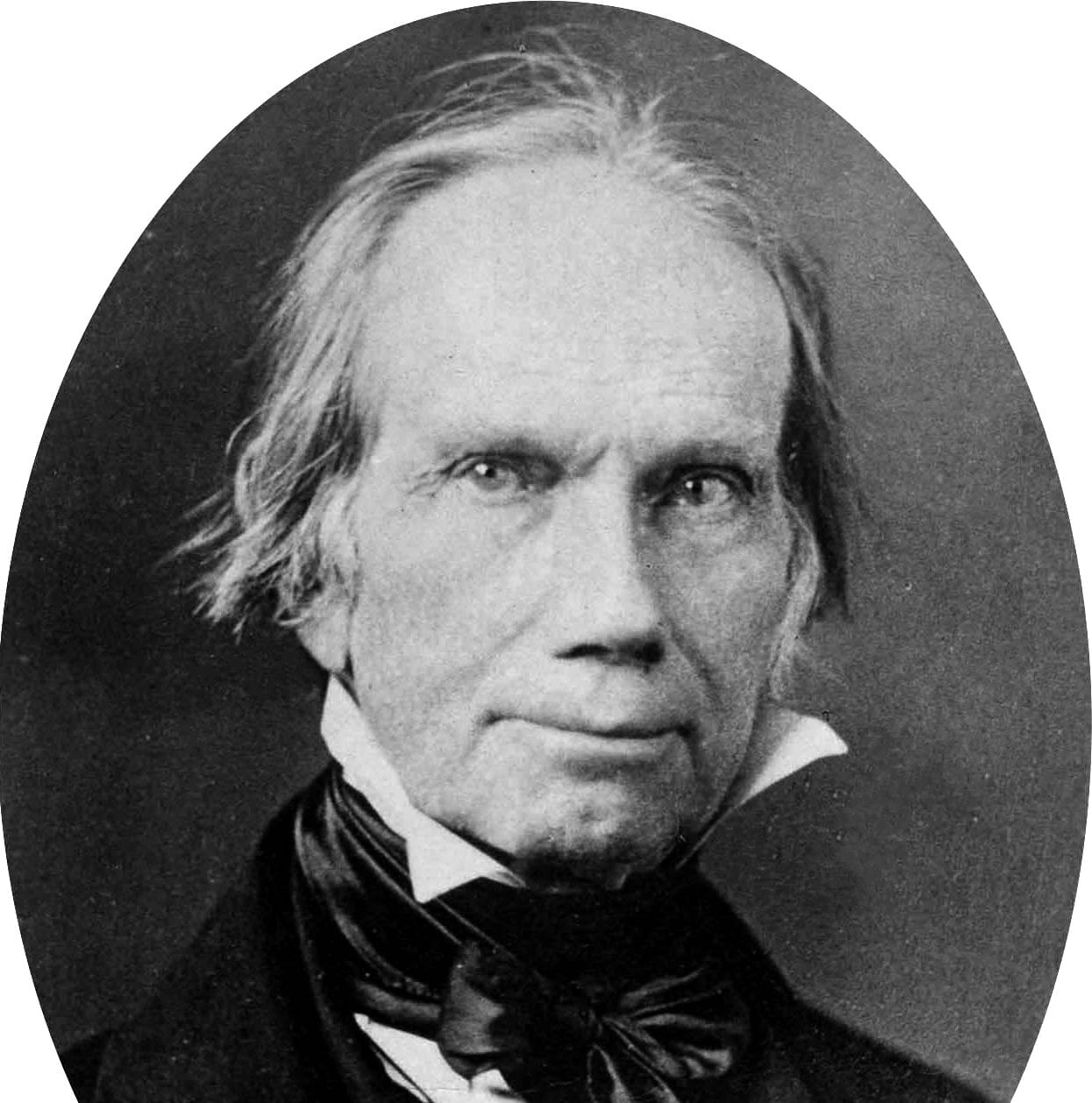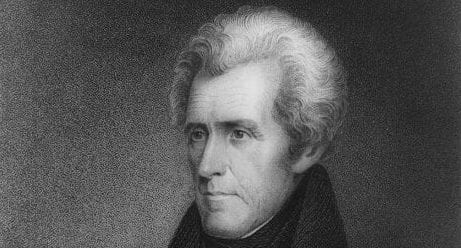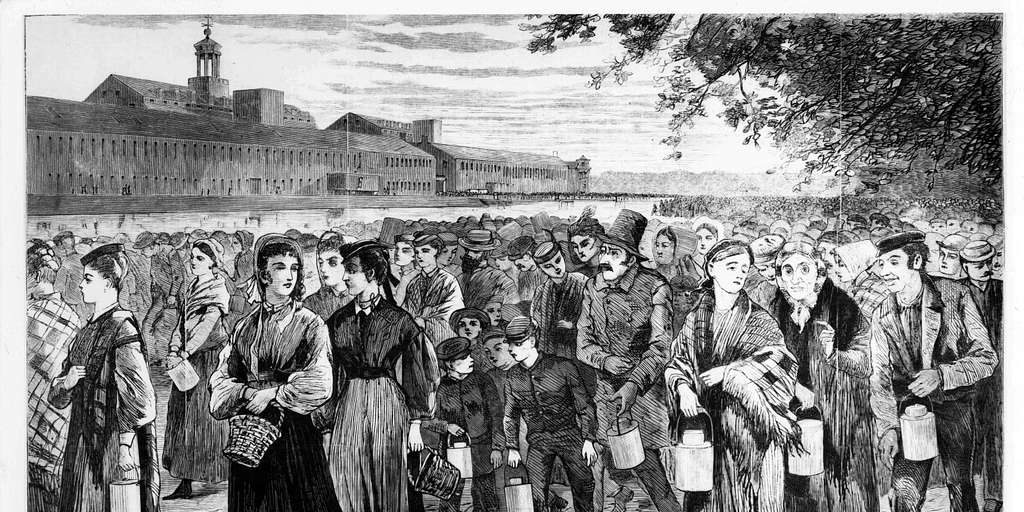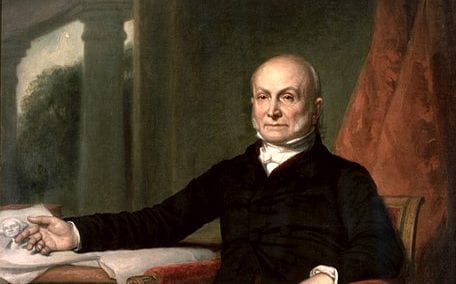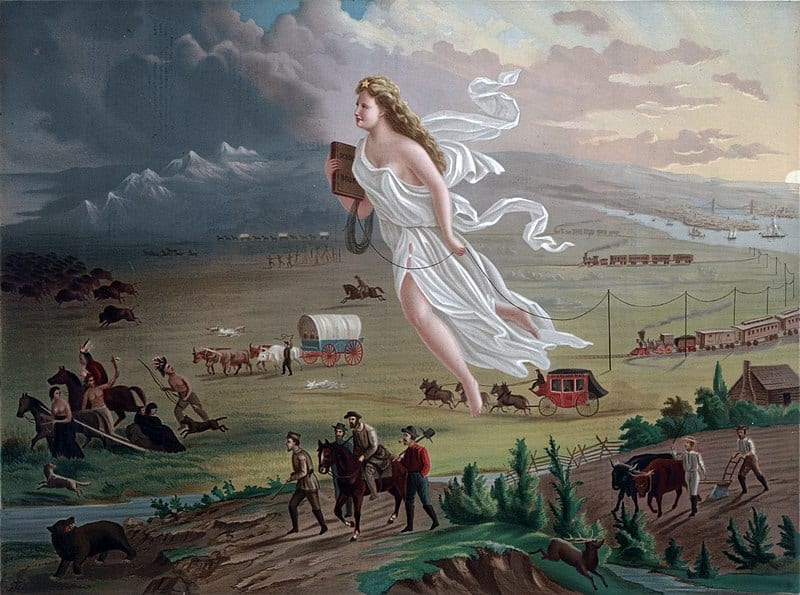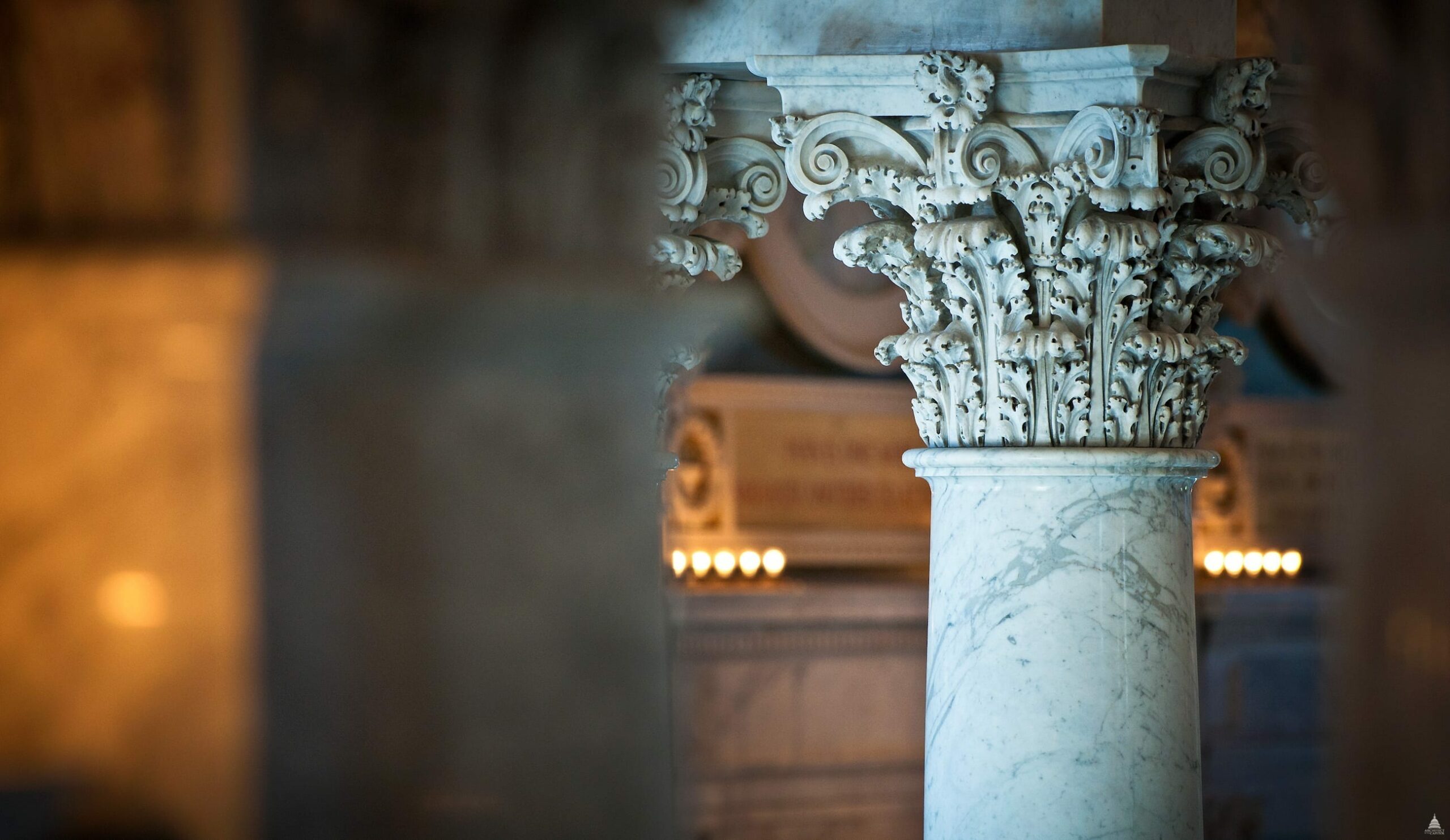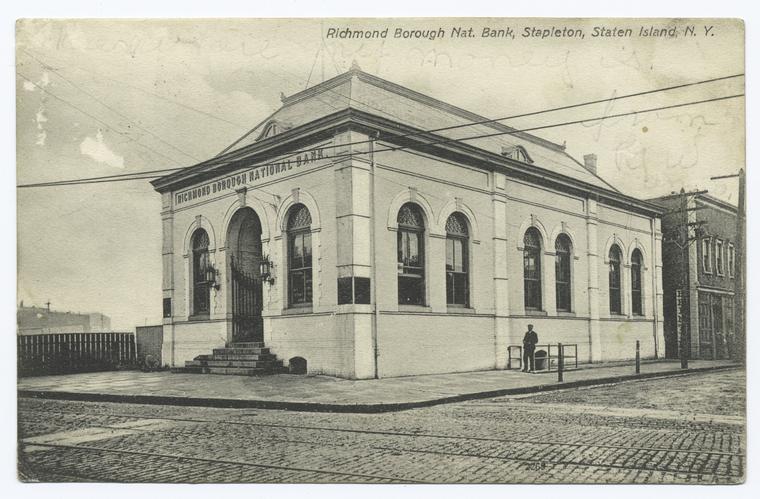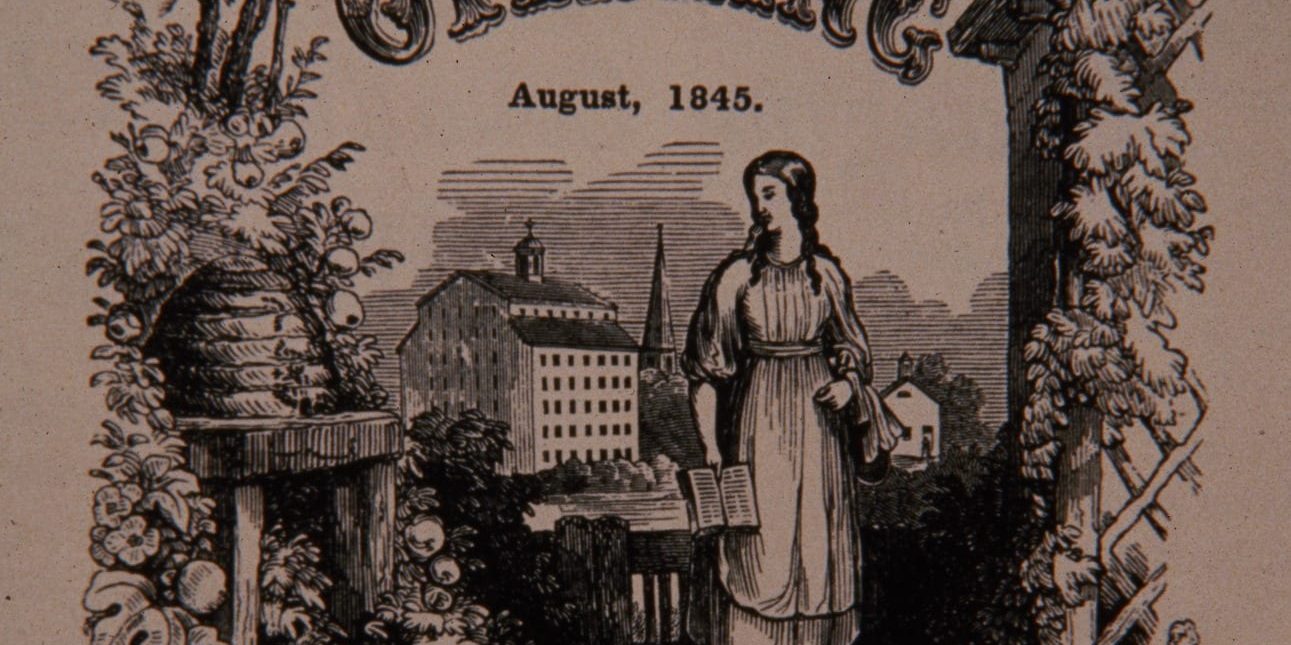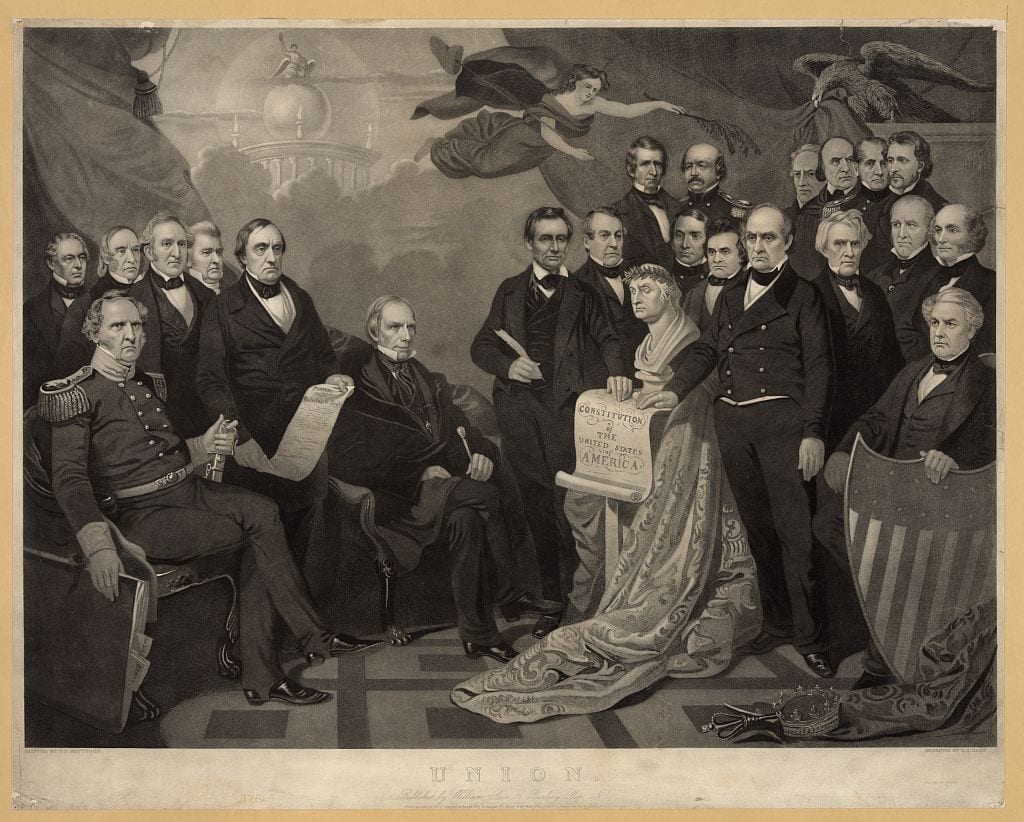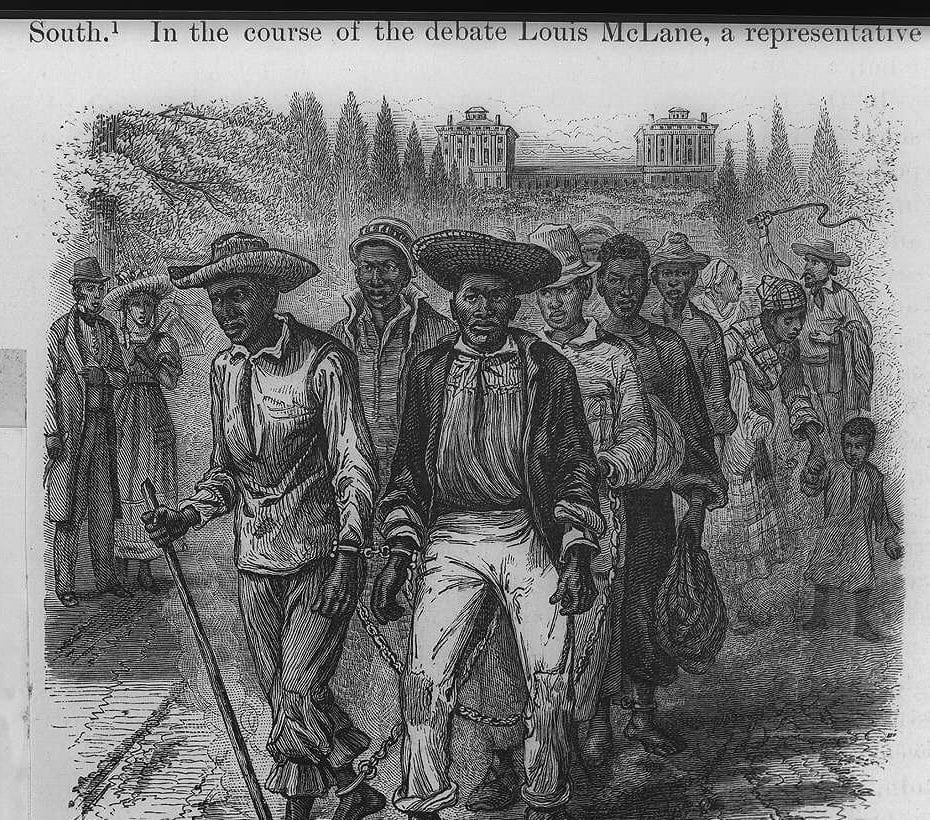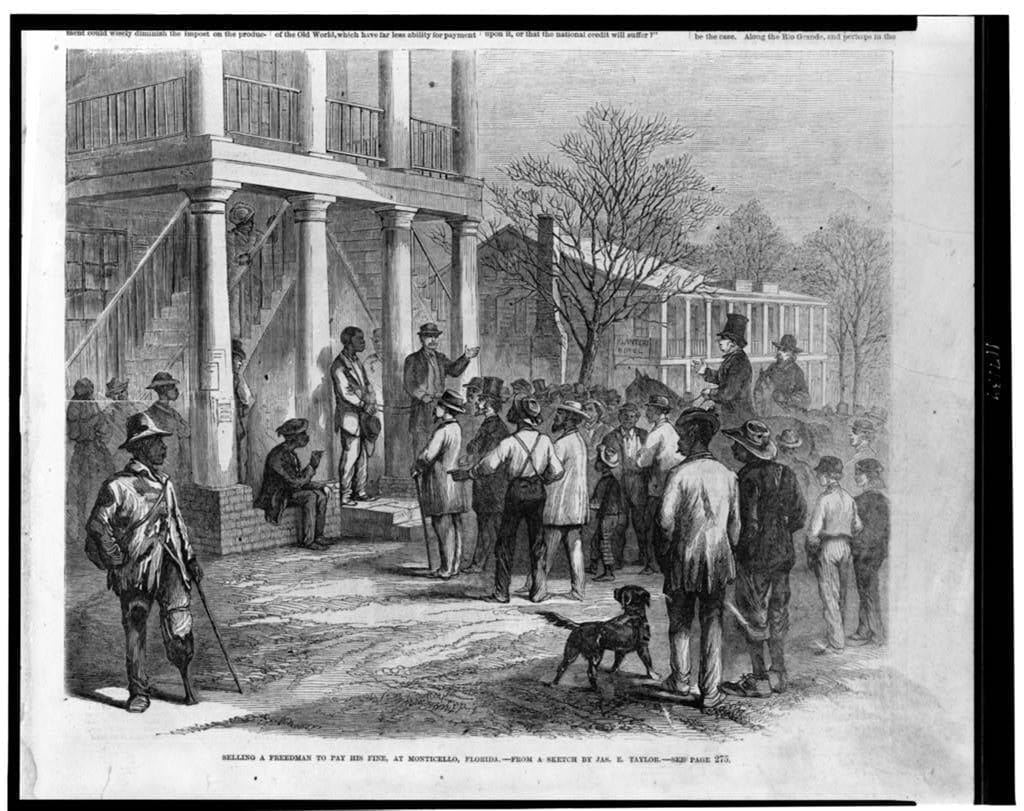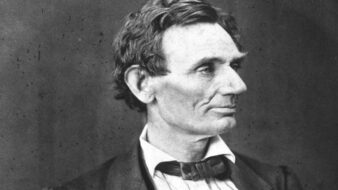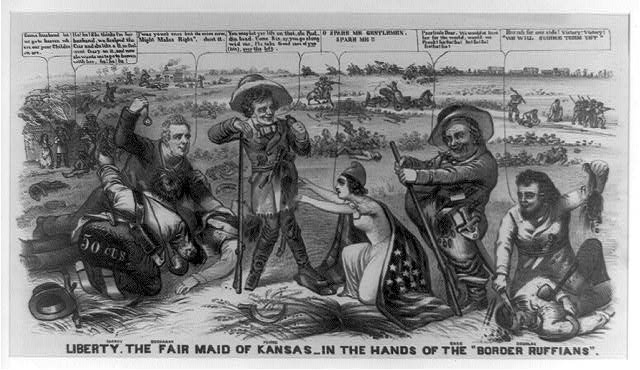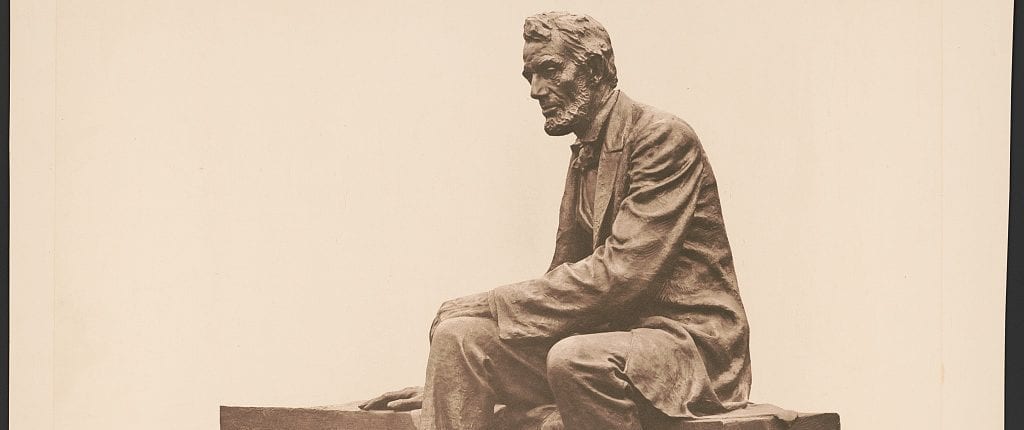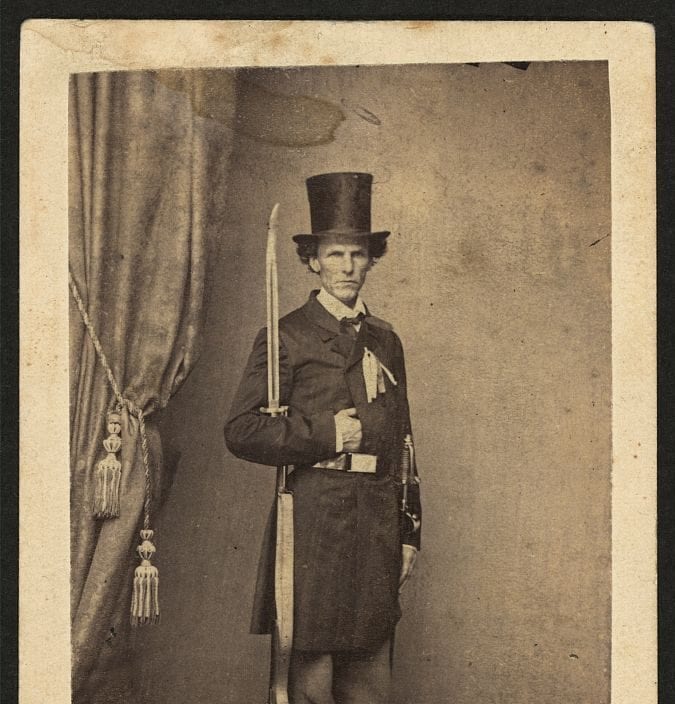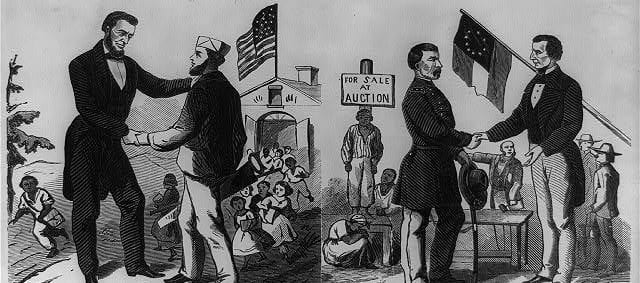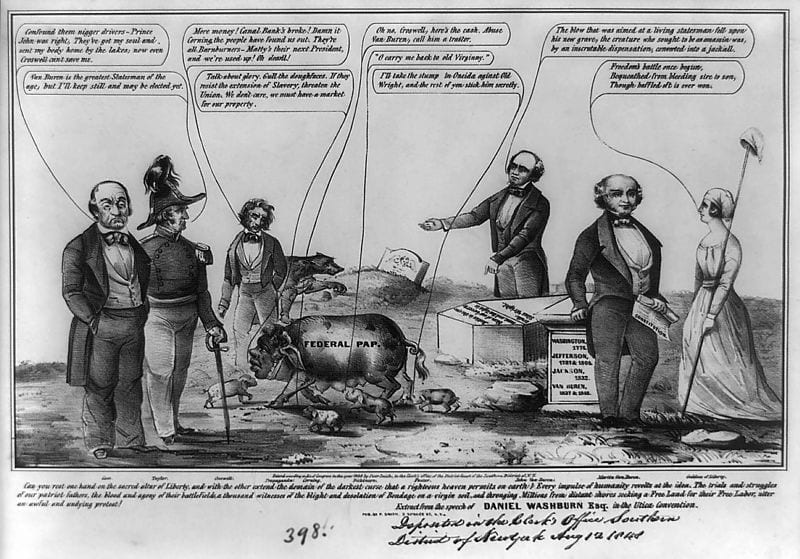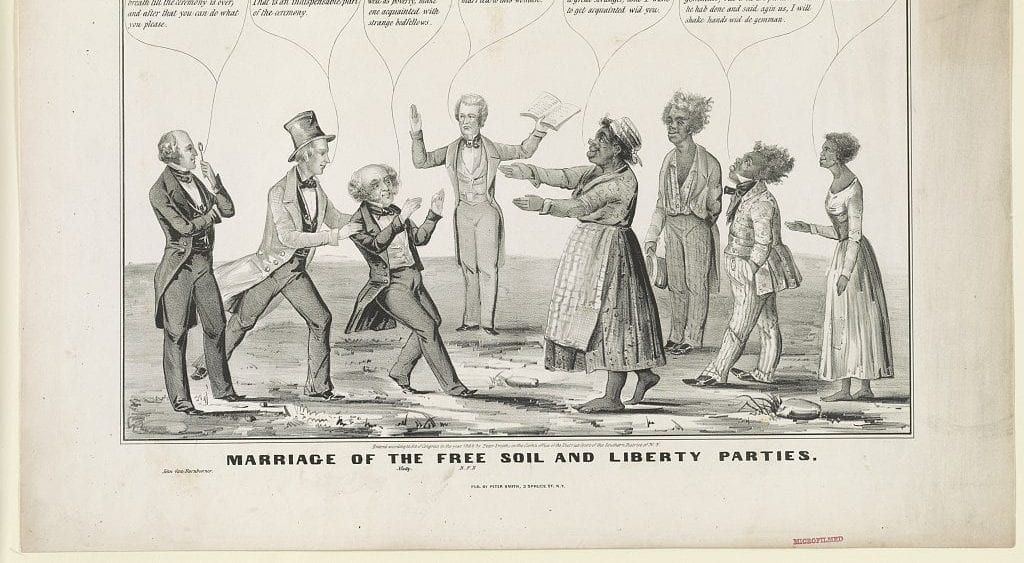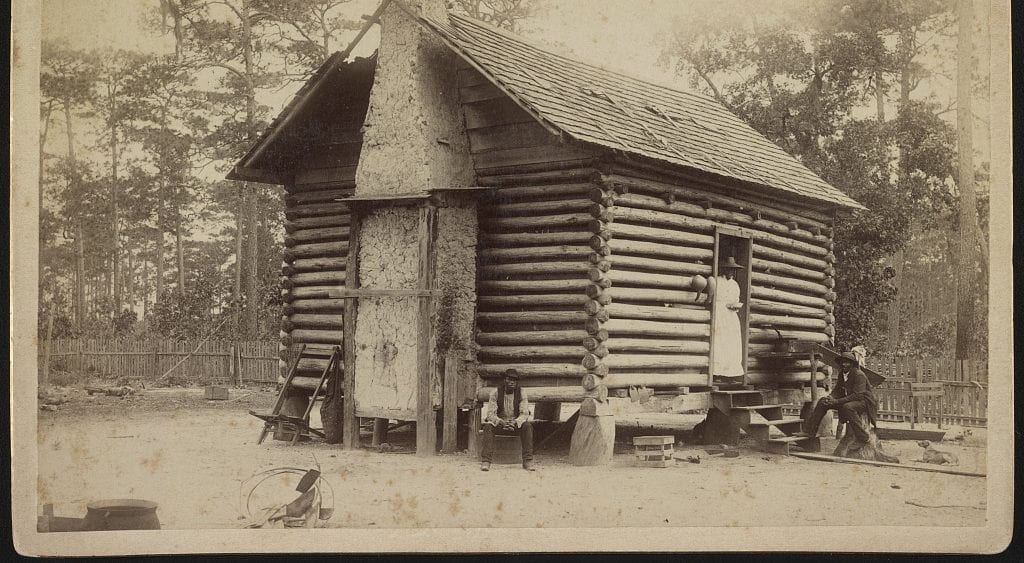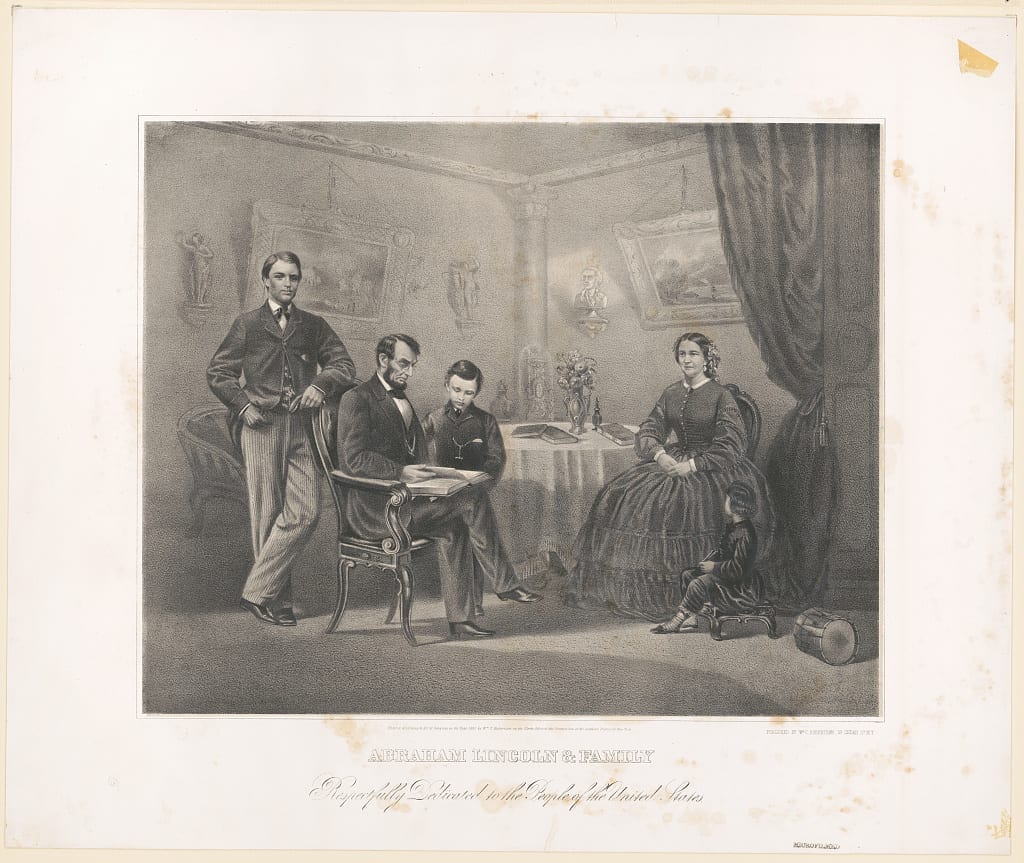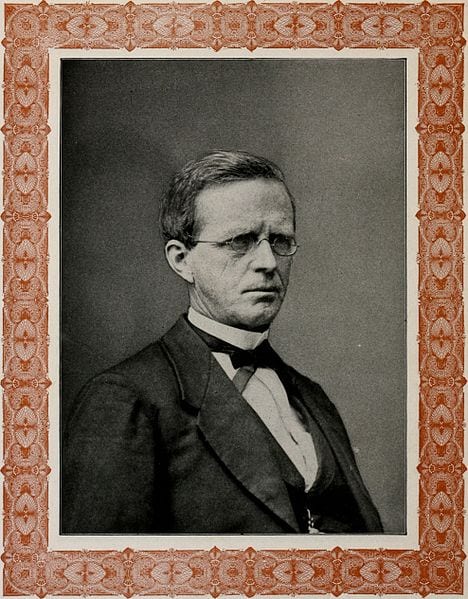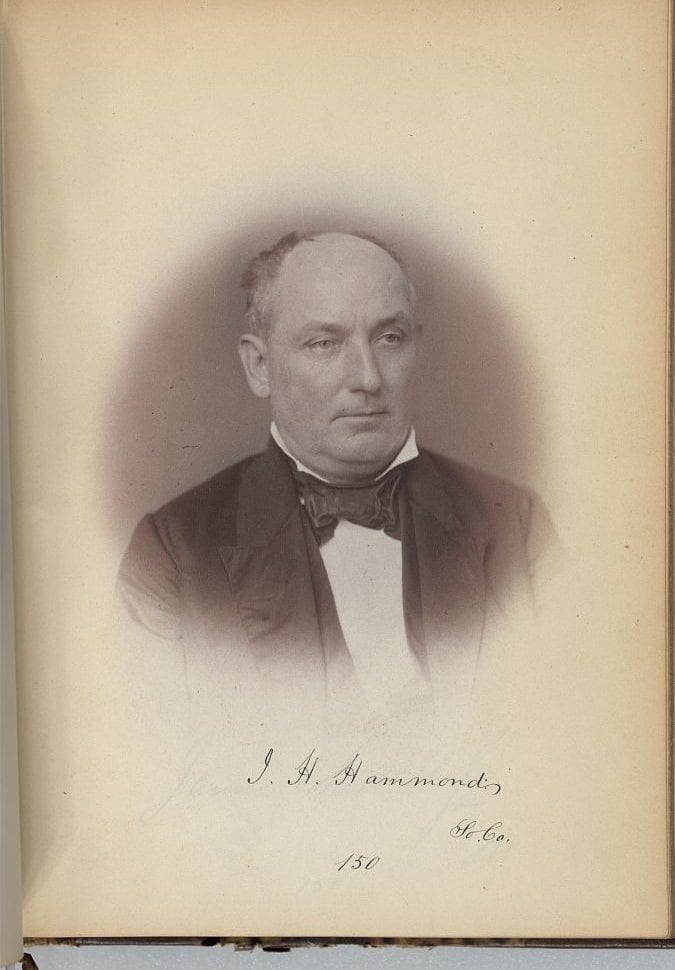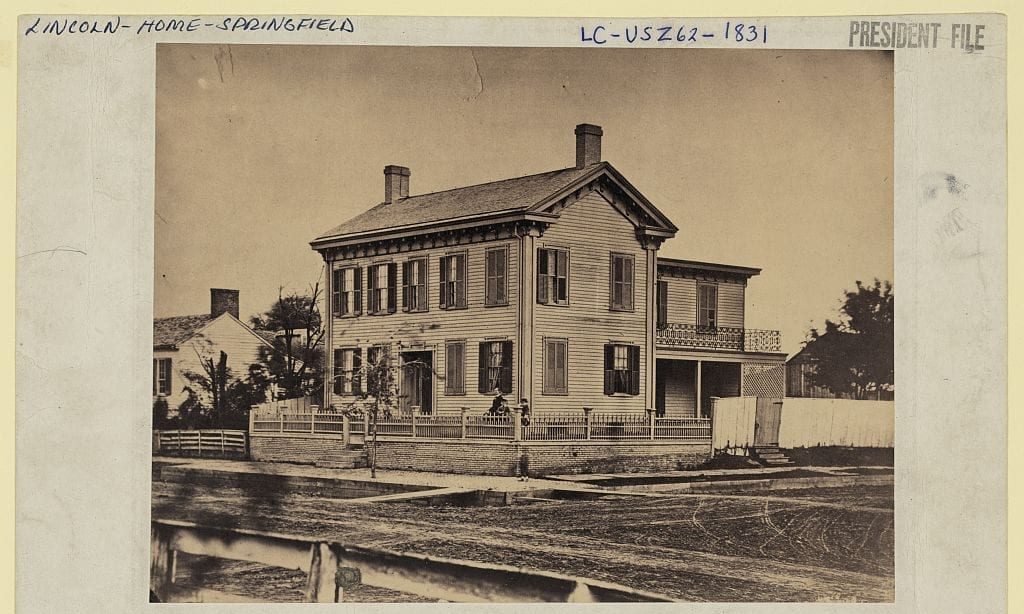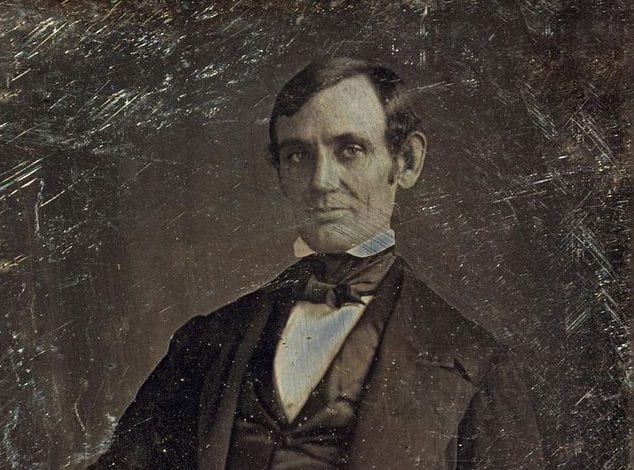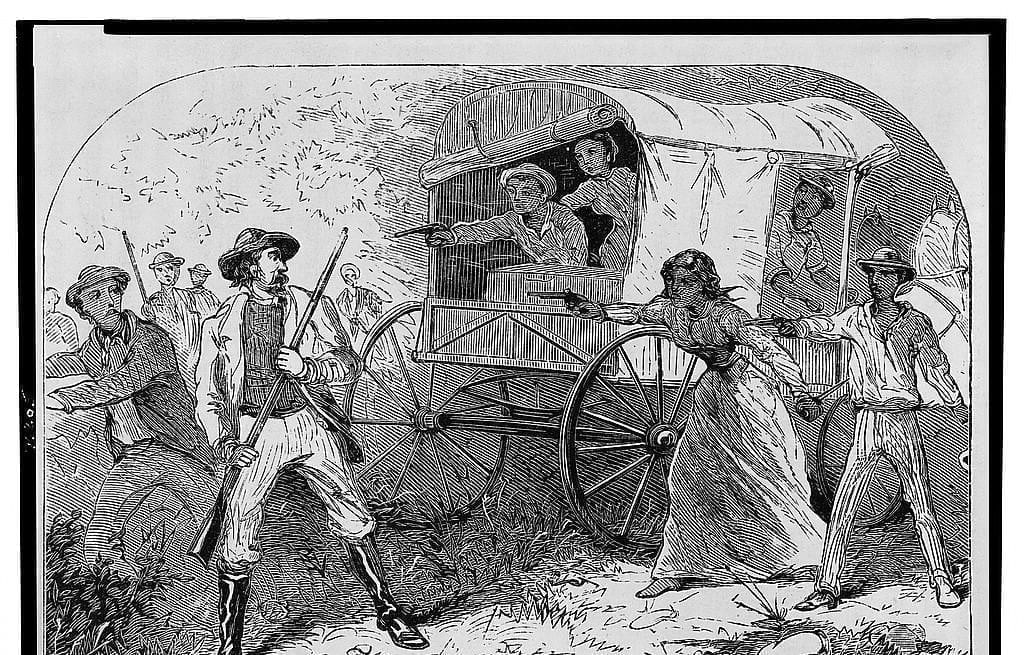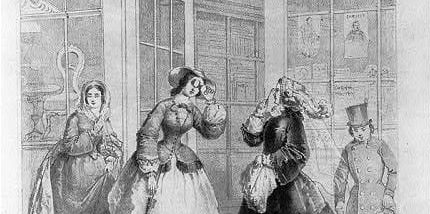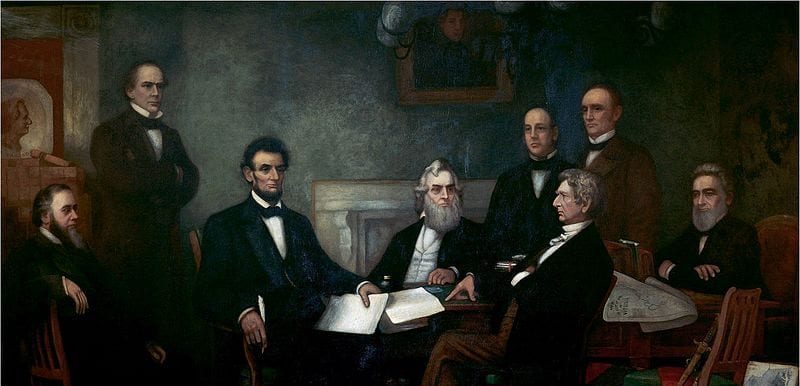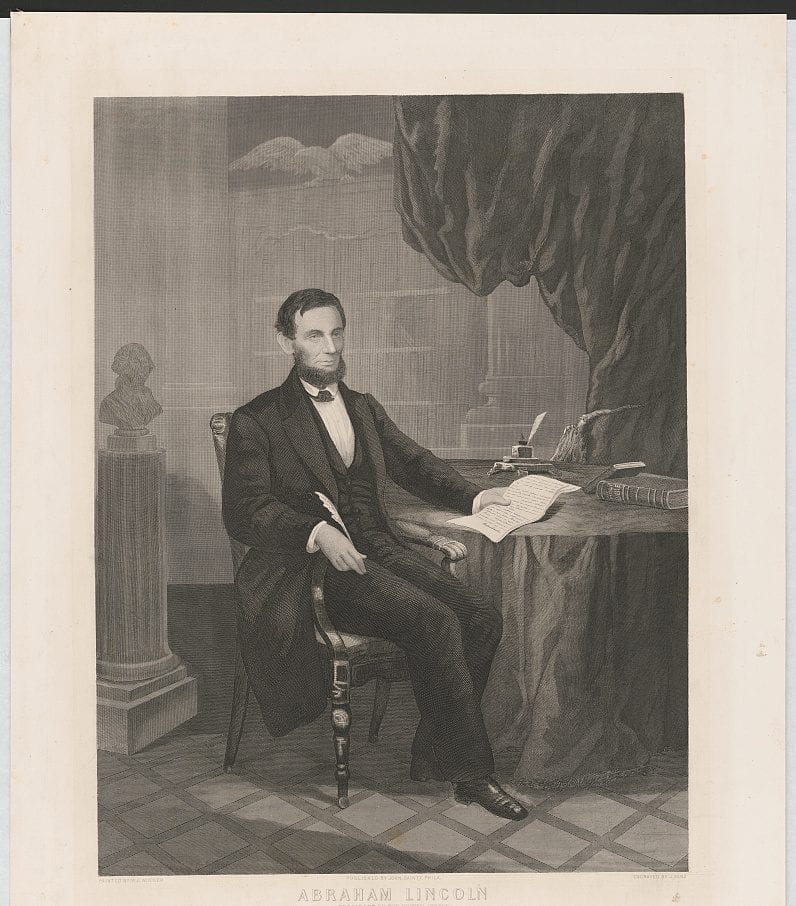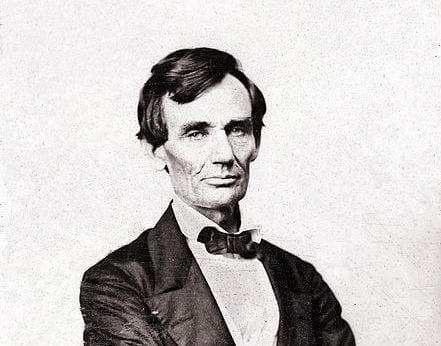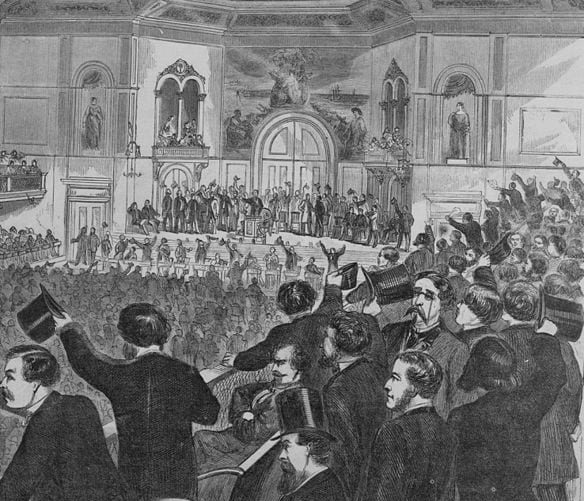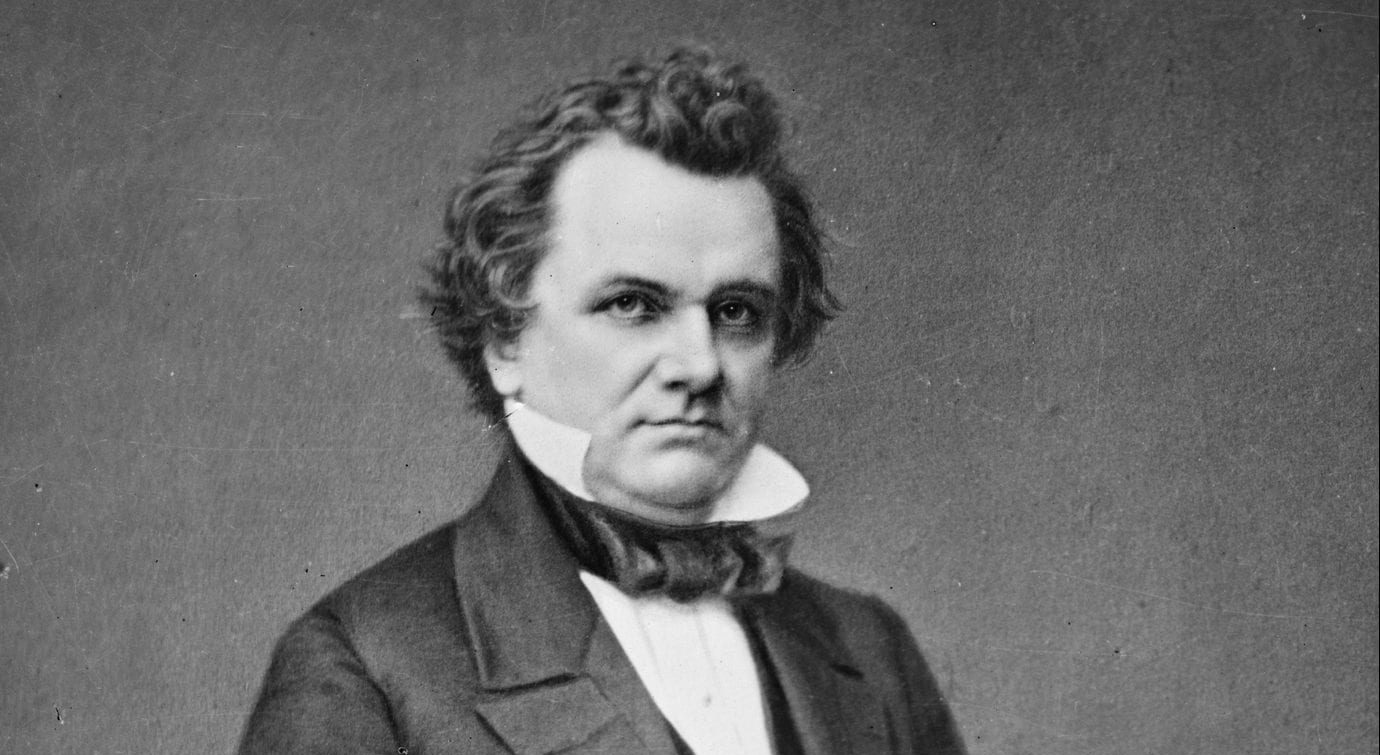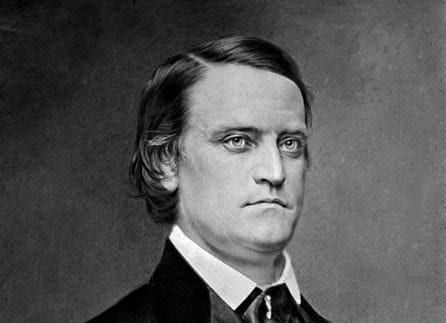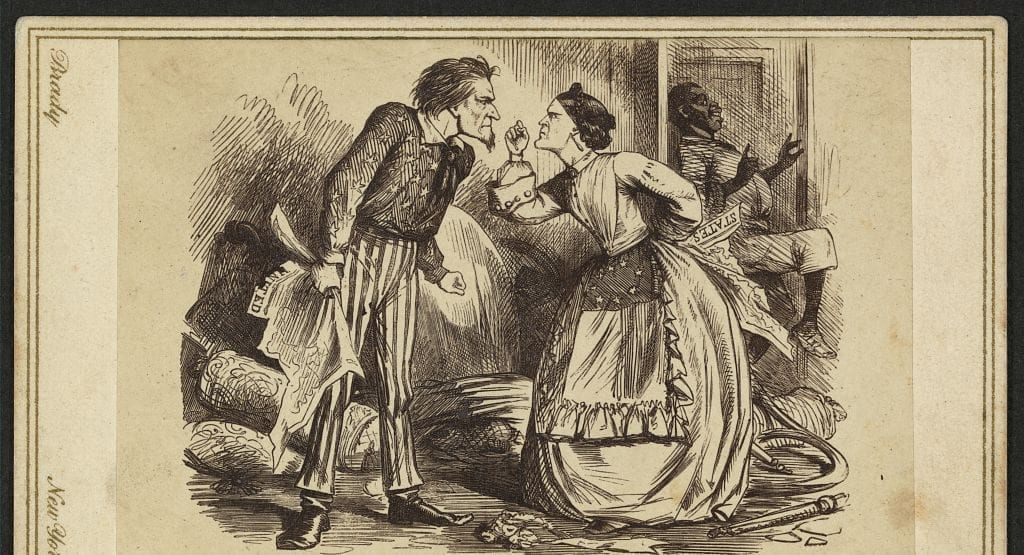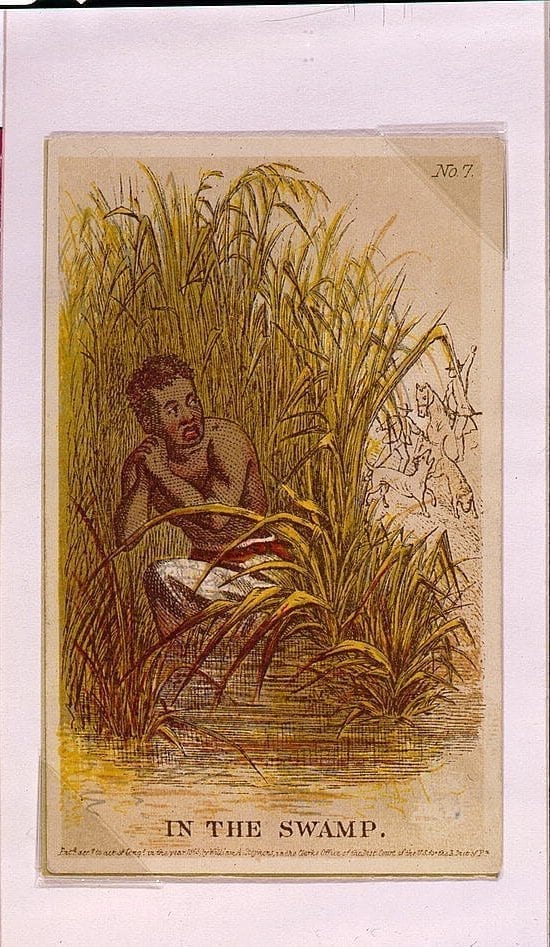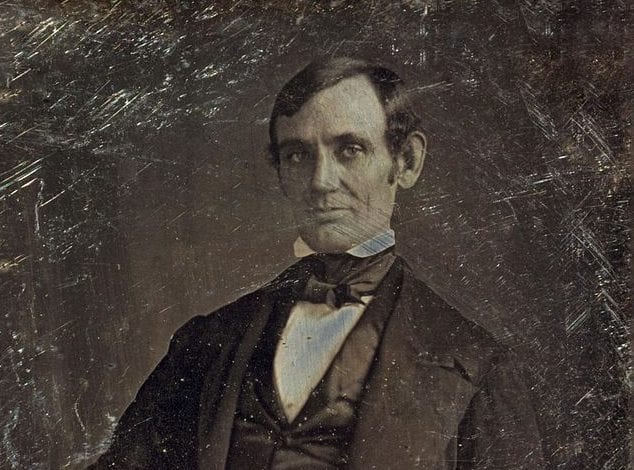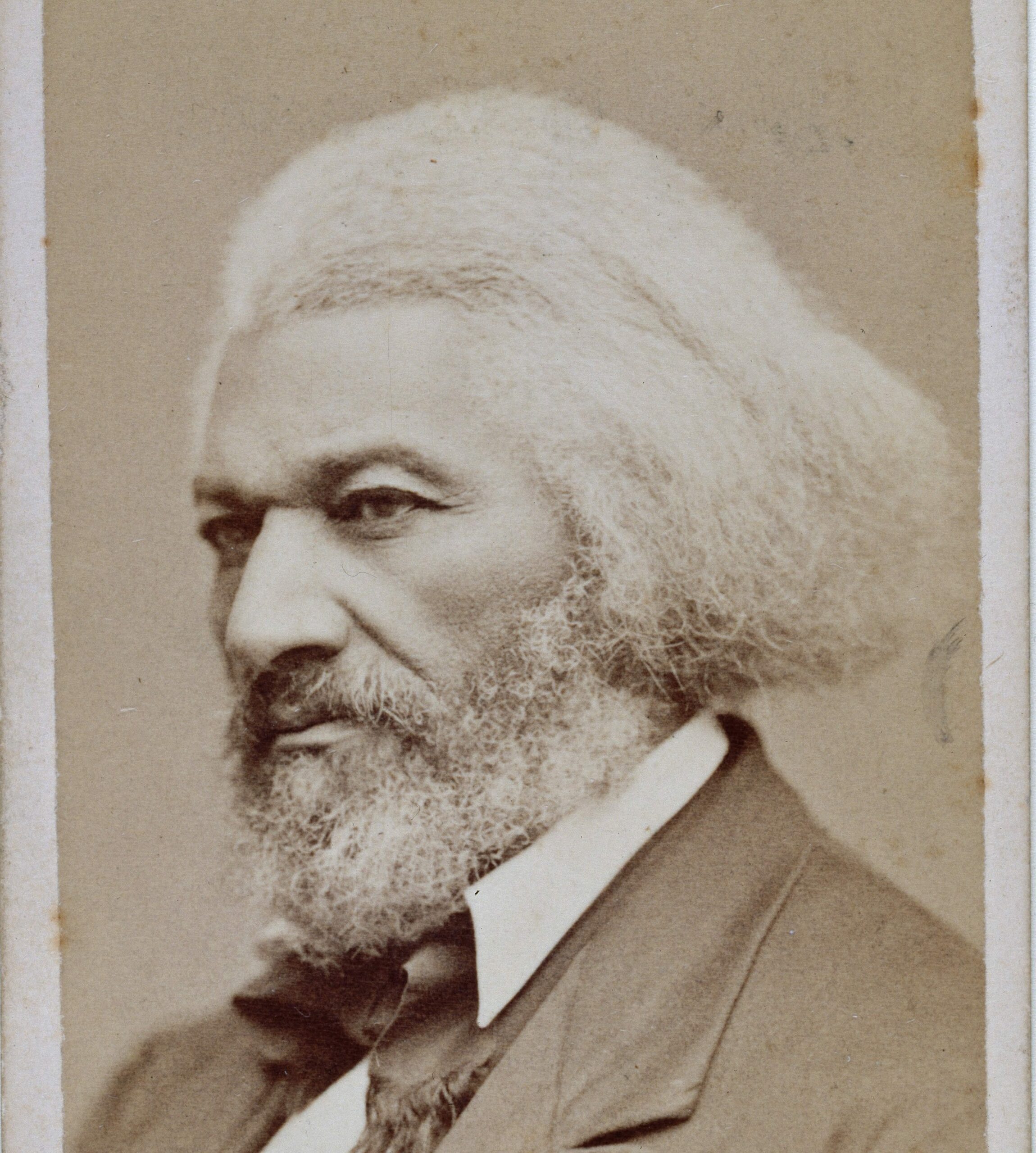
No related resources
Introduction
Shortly after the Mormon community settled in Nauvoo, Illinois, Joseph Smith, the religion’s founder, approved the organization of what became known as the Female Relief Society for “the relief of the poor, the destitute, the widow and the orphan, and for the exercise of all benevolent purposes.” The Relief Society kept careful records of their meetings; we reproduce the minutes from two separate gatherings here. Our first selection, the minutes from March 17, 1842, offers a glimpse not only of the formation of the group, but also on the relationship between Joseph Smith and his wife, Emma, which is remarked upon in “The Revelation on Celestial Marriage: Trouble Among the Saints”. The second describes the various activities undertaken by members of the society to help alleviate the financial strain put on the poorest members of the community by their obligation to contribute to the construction of the temple. Both excerpts are illustrative of the ways in which early Mormonism emphasized traditional nineteenth century feminine roles as not only divinely sanctioned but essential to the continued existence of their church.
The Relief Society continues to exist and to perform the same functions within the Mormon community today.
Source: “A Book of Records, Containing the Proceedings of The Female Relief Society of Nauvoo,” Nauvoo Relief Society Minute Book, 17 March 1842–16 March 1844; handwriting of Eliza R. Snow, Phebe M. Wheeler, Hannah M. Ells, and an unidentified scribe; 124 pages; CHL. Courtesy of The Church of Jesus Christ of Latter-day Saints. We modernized spelling and capitalization.
Nauvoo Lodge Room, March 17, 1842.
Present—President Joseph Smith, John Taylor, Willard Richards, Emma Smith and others.
Elder John Taylor was called to the chair by Pres. Smith, and Elder W. Richards appointed secretary,
Meeting commenced by singing “The spirit of God like a fire is burning” &c.—Prayer by Elder Taylor. . . .
. . . [T]he meeting was addressed by Pres. Smith, to illustrate the object of the society—that the Society of Sisters might provoke the brethren to good works in looking to the wants of the poor—searching after objects of charity, and in administering to their wants—to assist; by correcting the morals and strengthening the virtues of the female community, and save the Elders the trouble of rebuking; that they may give their time to other duties &c. in their public teaching.
Pres. Smith further remarked that an organization to show them how to go to work would be sufficient. He proposed that the sisters elect a presiding officer to preside over them, and let that presiding officer choose two counselors to assist in the duties of her office—that he would ordain them to preside over the society—and let them preside just as the presidency, preside over the church; and if they need his instruction—ask him, he will give it from time to time.
Let this presidency serve as a constitution—all their decisions be considered law; and acted upon as such.
If any officers are wanted to carry out the designs of the Institution, let them be appointed and set apart, as deacons, teachers &c. are among us.
The minutes of your meetings will be precedents for you to act upon—your constitutio[n] and law.
He then suggested the propriety of electing a presidency to continue in office during good behavior, or so long as they shall continue to fill the office with dignity &c. like the first precidency of the church.—
Motioned by Sister Whitney and seconded by Sister Packard that Mrs. Emma Smith be chosen President—passed unanimously—
Mov’d by Pres. Smith, that Mrs. Smith proceed to choose her counselors, that they may be ordained to preside over this society, in taking care of the poor—administering to their wants, and attending to the various affairs of this Institution.
The presidentess elect, then made choice of Mrs. Sarah M. Cleveland and Mrs. Elizabeth Ann Whitney for counselors—
President Smith read the Revelation to Emma Smith, from the book of Doctrine and Covenants; and stated that she was ordained at the time, the Revelation was given, to expound the scriptures to all; and to teach the female part of community; and that not she alone, but others, may attain to the same blessings.—
The 2d Epistle of John, 1st verse, was then read to show that respect was then had to the same thing; and that why she was called an elect lady is because, elected to preside.
Elder Taylor was then appointed to ordain the counselors— he laid his hands on the head of Mrs. Cleveland and ordained her to be a counselor to the elect lady, even Mrs. Emma Smith, to counsel, and assist her in all things pertaining to her office &c.
Elder T. then laid his hands on the head of Mrs. Whitney and ordained her to be a counselor to Mrs. Smith, the Pres. of the Institutio[n]—with all the privileges pertaining to the office &c.
He then laid his hands on the head of Mrs. Smith and blessed her, and confirmed upon her all the blessings which have been conferred on her, that she might be a mother in Israel and look to the wants of the needy, and be a pattern of virtue; and possess all the qualifications necessary for her to stand and preside and dignify her office, to teach the females those principles requisite for their future usefulness.
Pres. Smith then resumed his remarks and gave instruction how to govern themselves in their meetings. . . .
Pres. Smith proceeded to give counsel—do not injure the character of any one—if members of the society shall conduct improperly, deal with them, and keep all your doings within your own bosoms, and hold all characters sacred—
It was then proposed that Elder Taylor vacate the chair.
Pres. Emma Smith and her counselors took the chair, and Elder Taylor moved—seconded by Pres. J. Smith that we go into an investigation respecting what this society shall be called—which was carried unanimously
Pres. Smith continued instructions to the chair to suggest to the members anything the chair might wish, and which it might not be proper for the chair to put, or move &c.
Moved by Counselor Cleveland, and seconded by Counselor Whitney, that this society be called The Nauvoo Female Relief Society.
Elder Taylor offered an amendment, that it be called The Nauvoo Female Benevolent Society which would give a more definite and extended idea of the institution—that relief be struck out and benevolent inserted.
Pres. Smith offered instruction on votes—
The motion was seconded by Counselor Cleveland and unanimously carried, on the amendment by Elder Taylor.
The president then suggested that she would like an argument with Elder Taylor on the words relief and benevolence.
Pres. J. Smith moved that the vote for amendment, be rescinded, which was carried—
Motion for adjournment by Elder Richards and objected by Pres. J. Smith.—
Pres. J. Smith—Benevolent is a popular term—and the term relief is not known among popular societies—relief is more extended in its signification than benevolent and might extend to the liberation of the culprit—and might be wrongly construed by our enemies to say that the society was to relieve criminals from punishment &c. &c—to relieve a murderer, which would not be a benevolent act—
Pres. Emma Smith, said the popularity of the word benevolent is one great objection—no person can think of the word as associated with public Institutions, without thinking of the Washingtonian Benevolent Society which was one of the most corrupt Institutions of the day—do not wish to have it called after other societies in the world—
Pres. J. Smith arose to state that he had no objection to the word relief—that on question they ought to deliberate candidly and investigate all subjects.
Counselor Cleveland arose to remark concerning the question before the house, that we should not regard the idle speech of our enemies—we design to act in the name of the Lord—to relieve the wants of the distressed, and do all the good we can.—
Eliza R. Snow arose and said that she felt to concur with the president, with regard to the word benevolent, that many societies with which it had been associated, were corrupt,—that the popular Institutions of the day should not be our guide—that as daughters of Zion, we should set an example for all the world, rather than confine ourselves to the course which had been heretofore pursued—one objection to the word relief is, that the idea associated with it is that of some great calamity—that we intend appropriating on some extraordinary occasions instead of meeting the common occurrences—
Pres. Emma Smith remarked—we are going to do something extraordinary—when a boat is stuck on the rapids with a multitude of Mormons on board we shall consider that a loud call for relief—we expect extraordinary occasions and pressing calls—
Elder Taylor arose and said—I shall have to concede the point—your arguments are so potent I cannot stand before them— I shall have to give way—
Pres. J. S. said I also shall have to concede the point, all I shall have to give to the poor, I shall give to this Society—
Counselor Whitney moved, that this society be called The Nauvoo Female Relief Society—seconded by Counselor Cleveland—
E.R. Snow offered an amendment by way of transposition of words, instead of The Nauvoo Female Relief Society, it shall be called The Female Relief Society of Nauvoo—seconded by Pres. J. Smith and carried—
The previous question was then put—Shall this society be called The Female Relief Society of Nauvoo?—carried unanimously.—
Pres. J. Smith—I now declare this society organized with president and counselors &c. according to parliamentary usages—and all who shall hereafter be admitted into this society must be free from censure and received by vote—
Pres. J. Smith offered $5.00 in gold piece to commence the funds of the institution.
Pres. Emma Smith requested that the gentlemen withdraw before they proceed to the choice of secretary and treasurer, as was moved by Pres. J. Smith—
Willard Richards. Secretary
The gentlemen withdrew when it was motioned and seconded and unanimously passed that Eliza R. Snow be appointed secretary, and Phebe M. Wheeler, assistant secretary—
Motioned, seconded and carried unanimously that Elvira A. Coles be appointed treasurer—
Pres. E. Smith then arose and proceeded to make appropriate remarks on the object of the society—its duties to others also its relative duties to each other viz. to seek out and relieve the distressed—that each member should be ambitious to do good—that the members should deal frankly with each other—to watch over the morals—and be very careful <of> the character and reputation—of the members of the Institution &c.
P.A. Hawkes—Question—What shall we reply to interrogatories relative to the object of this society?
Pres. E. Smith replied—for charitable purposes. . . .
[We omit the records from the remainder of the meetings in 1842.]
June 16th 1843.
Meeting convened according to previous instructions of Prest. Emma Smith, who not being present, Councilor [Elizabeth Ann] Whitney presided.
Meeting opened by singing “Let Zion in her beauty rise” &c—Prayer by Mrs. Chase.
Councilor Whitney rose and addressed the meeting by saying that she felt alone in consequence of the absence of the president, from whom she had received instructions that we might not only relieve the wants of the poor but also cast in our mites to assist the brethren in building the Lord’s House—said she had felt a deep interest on the subject since last sabbath hearing Pres. Smith’s remarks—wished the sisters to express their feelings—our Pres., Mrs. Smith said we might speak to the Temple Com., and whatever they wished and we could, we might do—Coun. W. then presented the case of Mrs. Mills whom several of the sisters in company with mother Smith, visited in the morning.
Sec. E. A. [Elvira Annie Cowles] Holmes, then rose—said she was not altogether prepared to give a full and correct statement of the receipts and expenditures of the society but would make a statement so soon as she could see Mrs. Smith and adjust some unsettled accounts—suffice it to say about 500 dollars have been received and nearly 400 expended during the first year of the society—much good had been . . . done and the hearts of many made to rejoice.
The sisters expressed their feelings one by one a unanimous sentiment seemed to pervade the hearts of all present, to wit, a desire to assist in forwarding the Temple and in aiding the cause of Zion.[1]
Sis. Jones said she would be willing to go about and solicit material, if counseled so to do—she also offered to board one to work on the Temple.
Mrs. Durfee said if the heads of the Society wished, she is willing to go abroad with a wagon and collect wool, etc., for the purpose of forwarding the work.
Mrs. Smith suggested that merchant’s wives donate material that others may be employed.
Miss [Phebe M.] Wheeler—said she is willing to give any portion, or all of her time—
Mrs. Granger willing to do anything, knit, sew, or wait on the sick, as might be most useful.
Miss [Hannah] Ells said she had felt willing to go out and solicit donations &c.
Mrs. Angell said she was willing to repair old clothes if necessary when new material cannot be obtained.
Mrs. Smith proposed getting wool and furnish old ladies with yarn to knit socks to supply the workme[n] on the Temple next winter.
Sis. [Polly Knight] Stringham offered to make men’s clothes and take work on the Temple.
Sis. [Mary] Felshaw proposes to give some soap.
Coun. Whitney arose and corroborated the testimony of Sis Chase respecting the glorious manifestation in behalf of Sis. Mills.
Mrs. Chase then spoke in a very animated strain, by way of encouragement to the sisters, saying the angels are rejoicing over you &c. . . .
Sis. [Philinda] Stanley proposed giving every tenth pound of flax, also one qt. milk per day.
Miss [Louisa] Beman will make clothes.
Sis. Smith proposed getting muslin &c. from merchants not belonging to the church, who were friendly—proposed calling on Mr. Orr.
Coun. Whitney then addressed the Society on the subject of Mothers’ discharging their duties towards their daughters, in teaching them to be sober as cultivate a realizing sense of the necessity of conducting with propriety in the Lord’s House,—exhorted to instruct them in love &c.
Sis. Geen [Esther Gheen] offered to donate thread of her own spinning—requested prayers for a paralytic daughter—
Prayer by Mrs. Smith—Meeting adjourned. . . .
- 1. Construction on a uniquely designed worship center at Nauvoo had been going on for several years by this point; Mormon men were expected to contribute a large percentage of their working hours to the effort, even to the detriment of their families. Relief Society members hoped to step in and fill the need.

Conversation-based seminars for collegial PD, one-day and multi-day seminars, graduate credit seminars (MA degree), online and in-person.














